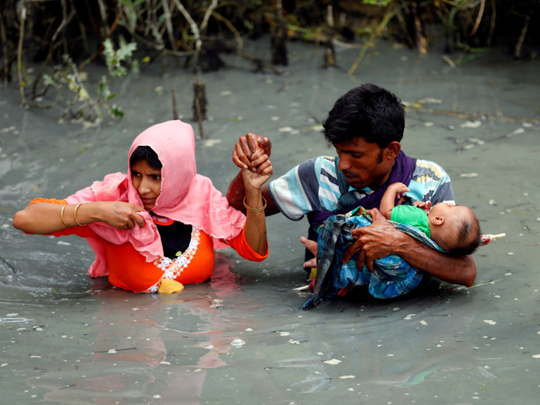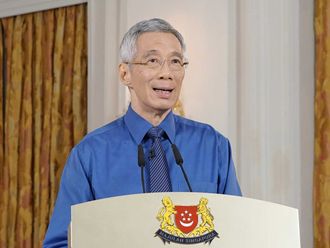
United Nations:The nearly one million Rohingya Muslim refugees still remain vulnerable, even though concerted efforts by the World Health Organisation (WHO) and its health partners as well as the Bangladesh government have helped save thousands of lives, while preventing and rapidly curtailing deadly disease outbreaks, the WHO said Friday.
The arrival of nearly 700,000 Rohingyas in Cox’s Bazar beginning August last year was one of the largest ever population influxes over such a short span of time. Escaping anti-Muslim violence in Myanmar’s Rakhine state, men, women and children arrived with injuries, low immunisation coverage and high rates of malnutrition, and at risk of deadly disease outbreaks.
Deadly disease outbreaks have also been held at bay in Co’s Bazar despite all the conditions being in place for a massive epidemic, he said, noting that outbreaks of measles, diphtheria, polio, cholera and rubella have been contained thanks to preventive inoculation campaigns that have required four million doses of vaccine.
“We need to sustain the vigilance for early warnings of infectious diseases, Dr Peter Salama, deputy director-general of Emergency Preparedness and Response for WHO, told journalists in Geneva. That is still a major risk due to the environmental situation, the poor sanitation, the massive overcrowding, the way these people are being housed and we need to maintain our ability to scale-up outbreak response as required.
His call to scale up help was echoed in Geneva by IOM, the UN migration agency, spokesperson Joel Millman.
“This was the fastest-growing refugee crisis in the world and the challenges have been immense,” he said, highlighting comments by the agency’s Chief of Mission in Bangladesh Giorgi Gigauri. Countless lives have been saved thanks to the generosity of the Government of Bangladesh, the local community and donors and the hard work of all those involved in the humanitarian response. But we now face the very real threat that if more funding is not urgently secured, lives will once again be at risk.
Despite these efforts, the WHO still warns of remaining challenges, as floods and landslides in the ongoing monsoon season continue to displace people and affect the functioning of health facilities. Also, the Rohingya population is reluctant to access sexual and reproductive health services, and as a result, 70 per cent of births are still taking place outside of health facilities.
The biggest challenge is the need to further scale up services to meet the complex, evolving, and long-term health needs of this highly vulnerable population, amid a funding shortfall that could undo the gains and progress made so far.
The WHO is seeking $16.5 million (Dh60.6 million) to continue supporting the Rohingya response, as part of the $113.1 million being sought by all health partners together under the Joint Response Plan until March 2019.
“We need to continue to support the health needs of this vulnerable population and remain vigilant against the spread of diseases. This is still a very fragile situation,” WHO’s Salama said.











